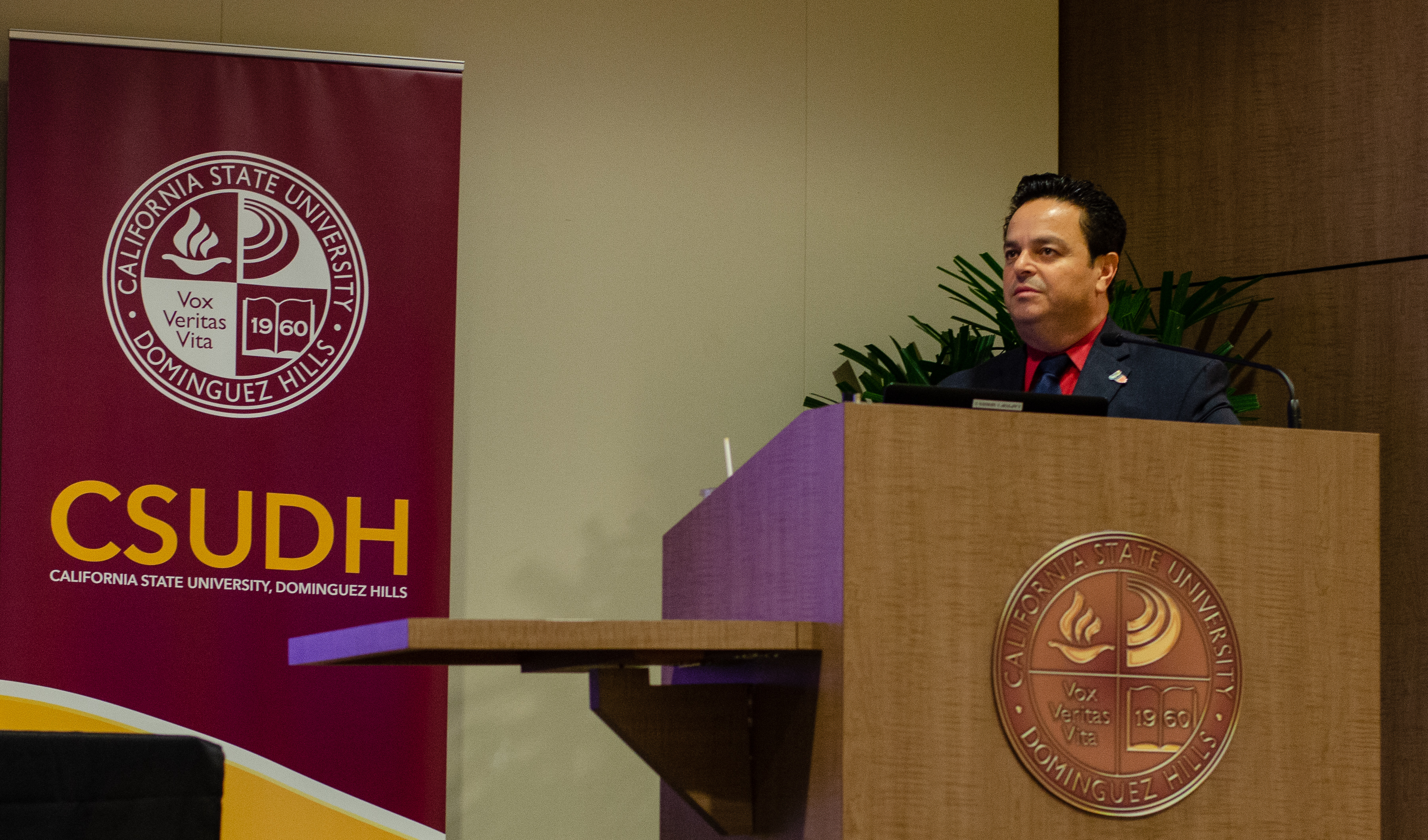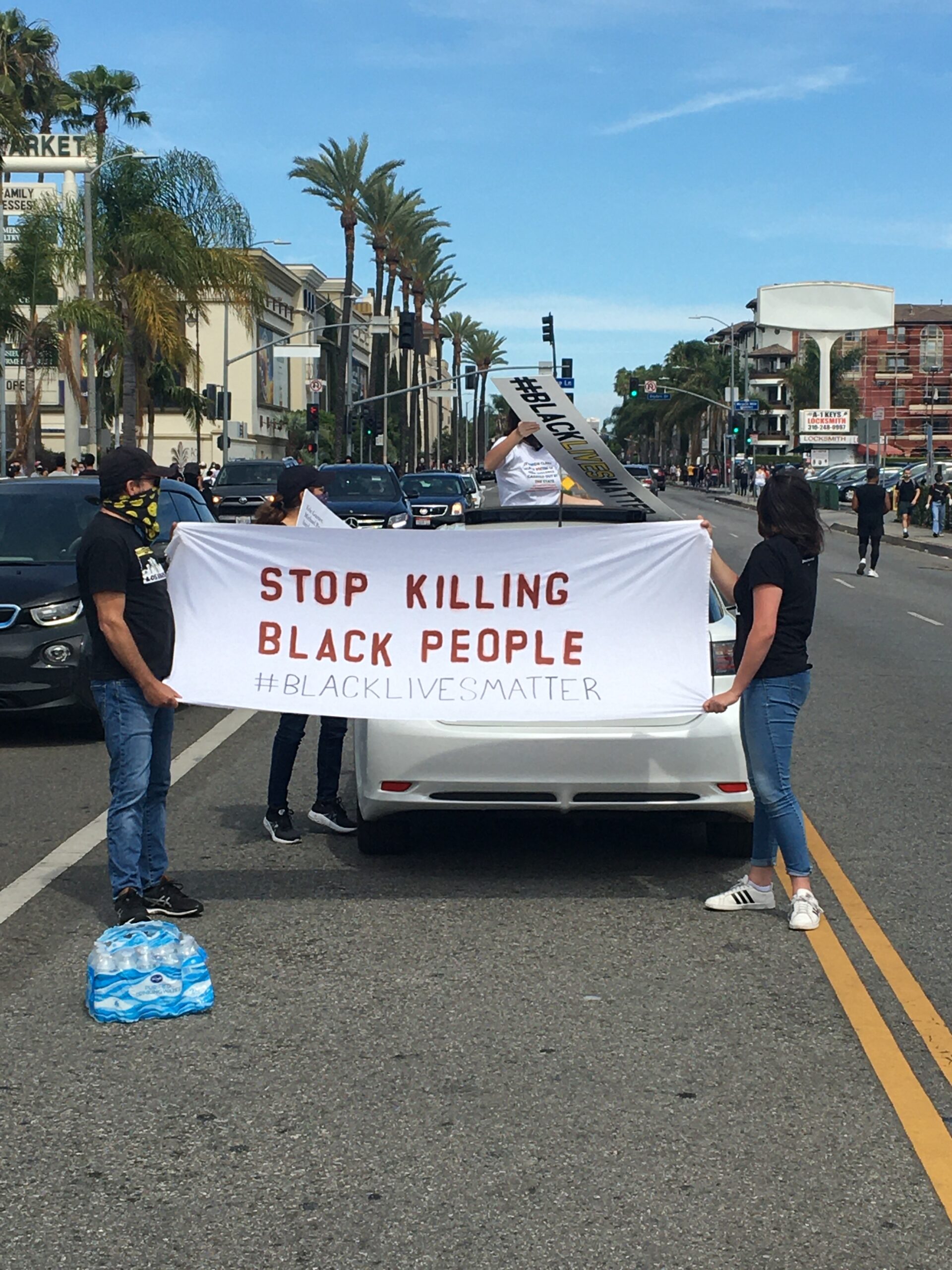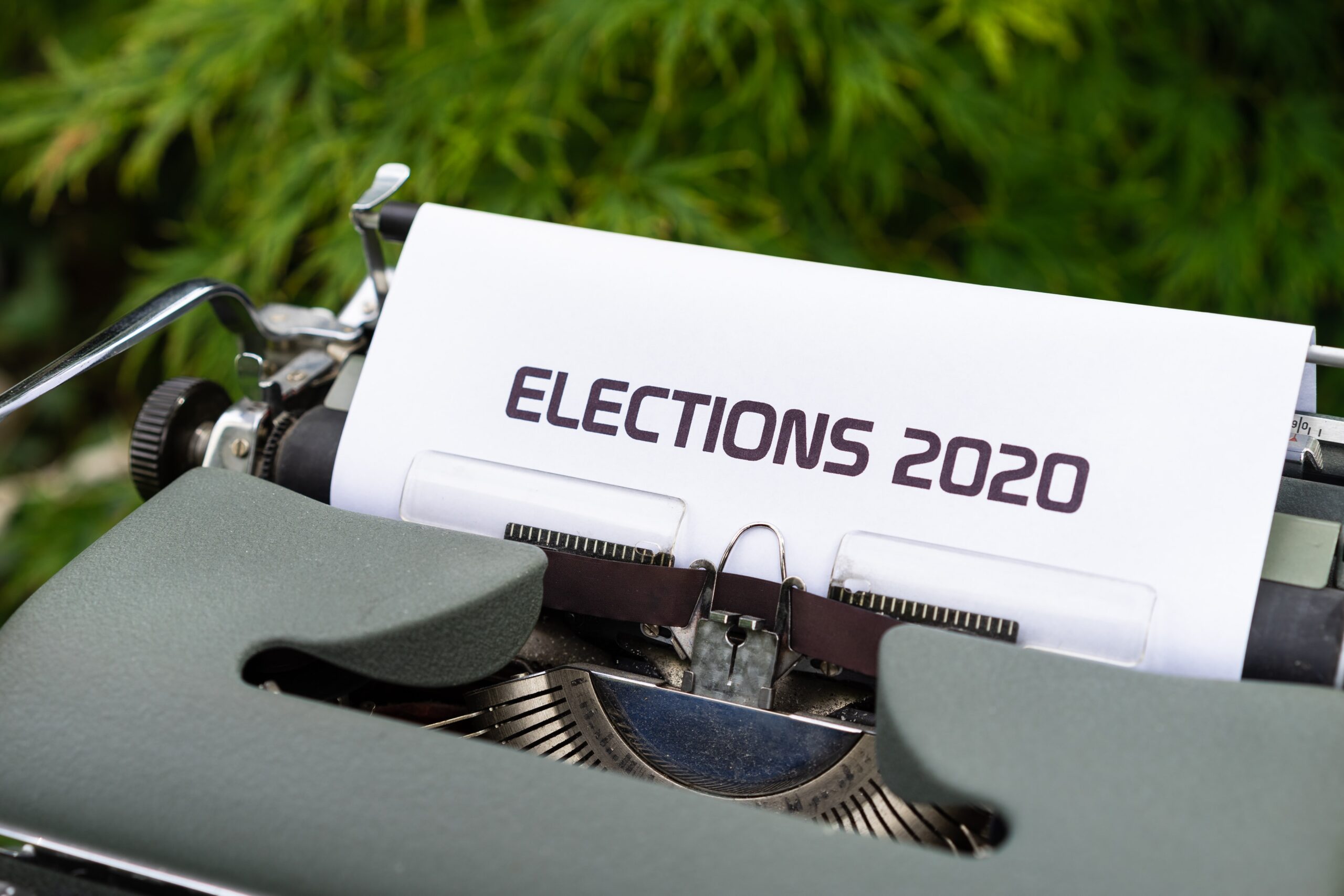By Kelsey Reichmann
Editor-in-Chief
In a week dedicated to educating and empowering CSUDH students about free speech and the First Amendment, Carson Mayor Albert Robles opted to talk about limiting free speech in his keynote address Tuesday, suggesting the media should have less First Amendment rights than others and that a landmark libel should be revisited.
In his approximately 90-minute address, part of CSUDH’s inaugural Free Speech Week, held in the Loker Student Union, Robles’ overarching theme centered around “us versus them.” He described how in the U.S. Constitution, the writers meant free speech for them and not everyone, in particular slaves. He says this theme continues through today.
Robles, who has served on the Carson City Council since 2012, took particular aim at the news media’s use of social media, suggesting that reporters not have social media accounts.
“It [social media] has given the opportunity for individuals for their own purposes for their manipulative desires to disseminate falsehoods, false truths, or just completely fabricate stories that…people read and believe,” he said.
Robles’ contention seemed to be that with newspapers losing readership, reporters are going to social media in an attempt to reach more readers, but abandoning any pretense of the objectivity they are supposed to have.
“[Reporters] start their Facebook and their Twitter account and they start disseminating their opinions and their stories,” he said. “ How they think certain things should be written. Or what they agree with or what they don’t agree with. So then when they write a story, you question how objective can they be.”
When asked directly if he thought reporters should have less free speech rights than other individuals, Robles firmly said yes, citing concerns over bias.
Robles was also asked about New York Times v. Sullivan, a landmark 1964 case that established that elected officials must prove actual malice to sue for defamation and that the First Amendment right to a free press gives the media an implicit right to criticize governmental officials. President Donald Trump has called for libel laws to be “opened up,” which would probably require overturning Sullivan, and Supreme Court Justice Clarence Thomas has called for the case to be overturned or at least revisited.
Robes said he believes the case should be reconsidered considering the harmful attacks on elected officials. Robles said he did not believe this would impact the job of the media to hold truth to power.


